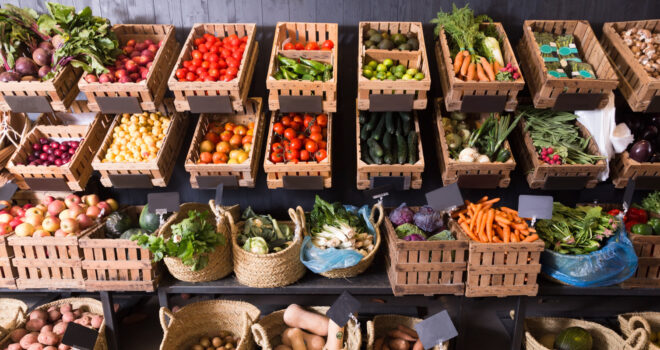The Observatoire de la consommation responsable (OCR) has published its 2017 study of responsible attitudes and practices in Quebec with a particular focus on food.
The OCR, a research unit of the Université du Québec à Montréal’s School of Management, has published its 2017 Responsible Consumption Index, a study supported by RECYC-QUÉBEC.
Responsible Consumption Index (ICR): Attitudes to practices
The ICR has measured responsible consumption annually since 2010. In 2017, it was calculated using the attitudes and practices reported by a sample of 1,002 consumers.
The analysis indicates a growing awareness of responsible consumption. Agreement with the following three statements significantly increased from 2016 levels:
- + 6.3 points “We need to rethink our lifestyles and consumption patterns.”
- + 3.8 points “I’m always concerned about the environment these days.”
- + 3.6 points “I look for more natural products.”
But people don’t always live by those values: “The 2017 Responsible Consumption Index and the reported consumption of environmentally responsible products may not necessarily reflect this trend, as little action has been taken so far,” say the study’s authors. The most common daily practices are recycling and buying locally sourced goods.
The authors also observed that people have higher expectations with regard to corporate social and environmental responsibility. Quebecers would like to be better informed about the manufacture and composition of all types of products they buy.
Responsible food consumption in Quebec
The report outlines choices and behaviours in various areas, particularly food purchasing.
The most commonly bought environmentally responsible foods in 2017 were locally grown fruits and vegetables, including strawberries, apples, tomatoes, lettuce and greens, and organic tomatoes. Local foods like bread, jam, fruit juice and cookies were also popular. Other responsible choices included buying locally raised meat and poultry, and free-range eggs.
Over half of the study sample reported having a vegetarian or vegan diet, although more than two thirds said they ate red meat a few times a week (35.2%) or month (35%).
For the first time, the 2017 index looked at attitudes toward animal welfare-friendly products. The responses show a high sensitivity to animal welfare, especially when it comes to food production.
Some consumers reported buying “imperfect” produce, such as damaged fruits and vegetables, to save money, reduce food waste, eat healthily and encourage local producers.
Finally, buying food in bulk—nuts, peanuts, spices, dried fruit, rice, pasta, pulses, flour, coffee and cereals—appears to be a valued eco-friendly practice.



 Celery
Celery  Chard
Chard  Vegetable garden: growing eggplant
Vegetable garden: growing eggplant 









